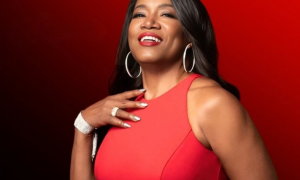When I first decided I wanted to play keyboards on Broadway—and this will be a reoccurring theme—I had no idea where to start. There were a lot of very generous musicians who helped guide me along the way.
So in an effort to pay back that kindness, and in the hopes that this might help somebody out there with similar goals, I'm going to tell you the story of how I got my gig.
It's a long story, so we're going to publish it in 5 parts over the next 5 days.
- Monday: Committing to the Goal
- Tuesday: Resume Building
- Wednesday: Community Building
- Thursday: Reputation Building
- Friday: Playing the Part
The series will be housed at it's home page: How I Became a Broadway Musician
If you enjoy this series, please share that link with your friends. As this week goes on, the links on that page will become active.
What Is the Job? I should probably explain a little about Broadway work.
Every Broadway show in New York City has a live orchestra. The number of players in each show fluctuates, as does the instrumentation. Some shows have 23 musicians, including a full string section and standing conductor. Some shows have a 6-piece band with 2 keyboards, a rhythm section and a horn player.
Further Resources For an excellent overview of the Broadway profession, visit the website of Broadway contractor John Miller and watch the videos in the contracting section.
Also visit the Allegro (the newspaper of the NYC musicians' union) and read a transcript of a talk John gave several years ago about working on Broadway.
The musicians in a Broadway pit play the same music, the same way, for eight shows a week. They get one day off a week. For some musicians this might sound like an unbearable task, so of course the gig isn't for everyone. For for other musicians, like myself, it presents a worthy challenge and a fun gig.
The benefits are nice, too. Broadway orchestra pits are run under a union contract from the American Federation of Musicians, which standardizes payscale, pension contributions and health care contributions. Salaries vary depending on how many instruments a musician plays, whether they are on stage, etc., but under the current Broadway agreement nobody makes less than $1,500/week. You can research Broadway salaries at the Local 802 website.
Also, most Broadway pits allow their musicians to sub out up to 50% of the shows without losing their job. The musicians aren't paid for the shows they miss, and they are responsible for training and scheduling (but not paying) their own subs, but it allows each player to pursue projects and interests outside of their steady Broadway gig.
This subbing policy creates a large network of subbing musicians in the Broadway scene. Each “chair" on Broadway may have 3-5 subs each. So a show that has 15 musicians in the pit can conceivably give work to 45-75 other musicians. Nevertheless, it can be very difficult to break into the subbing scene in New York. As you're about to hear—it took me years.
Subbing is often the first job that musicians find on Broadway—as it was for me. This story spans 8 years and ends with the night I first subbed on Broadway.
How This Story Relates To You The path I took to get a musician job on Broadway isn't the only way to get a Broadway gig— it's just the way I did it. If you play a different instrument or have a different background there's going to be a few things here that you might not think are relevant or helpful to you.
However, the truth is that this story doesn't necessarily have to be about playing on Broadway. In fact, I know that there will be a lot of musicians reading this who don't want to play theatre gigs.
A lot of the things I did to get this gig are the kinds of things that will help you get any gig you want. Just substitute [playing keyboards on Broadway] with [whatever you want to do]. If I had been passionate about film scoring, or songwriting, or trading on Wall Street—I would have pursued that work in much the same way that I pursued Broadway work.

























